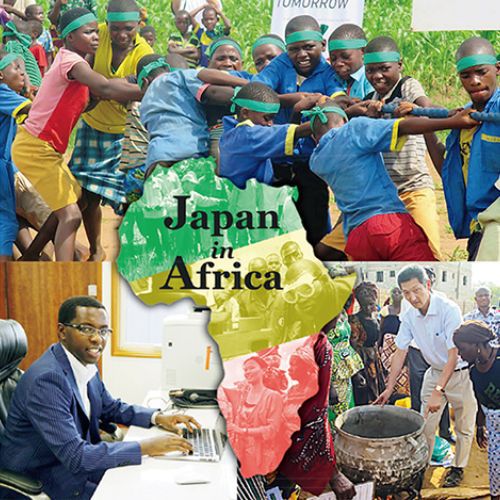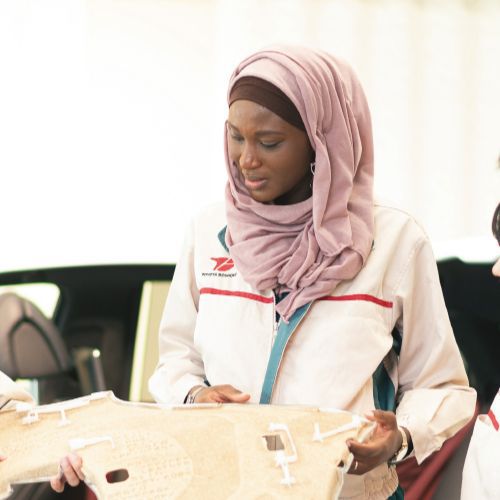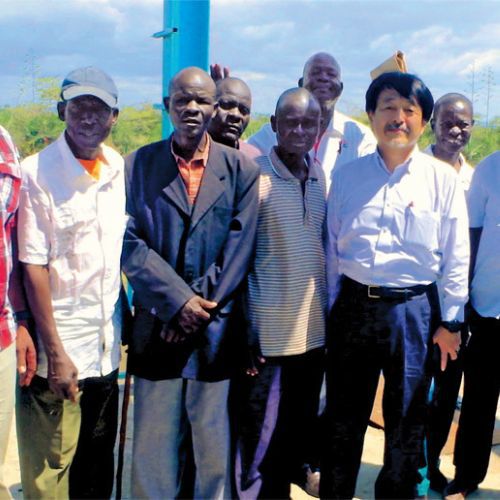The ABE Initiative awards talented young Africans with post-graduate scholarships and internships, to provide them with opportunities to work in Japan or pursue careers that connect Japan and Africa
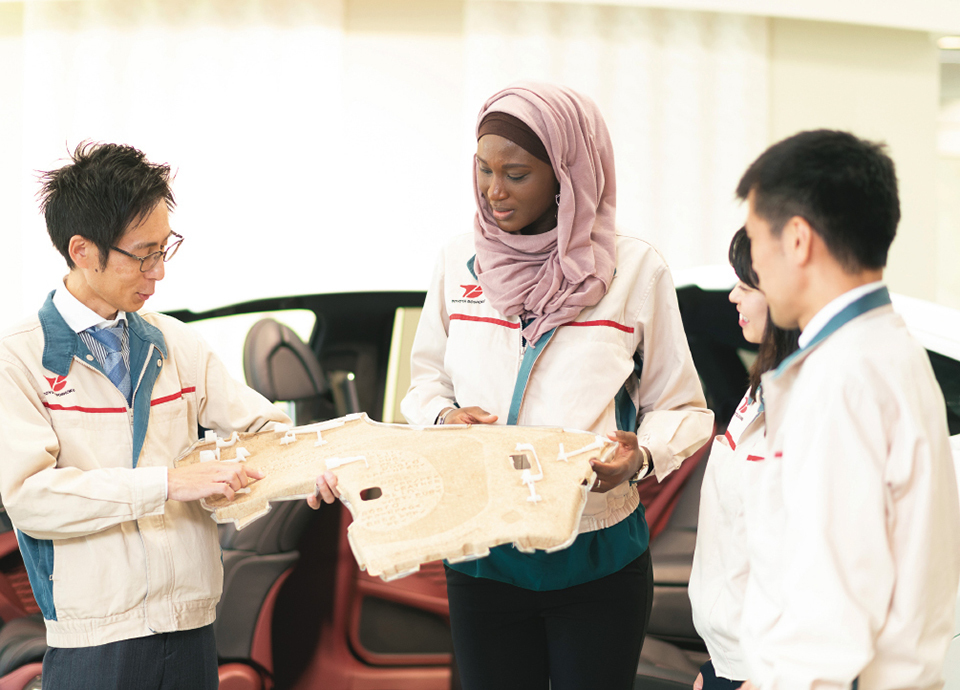
“When I saw the program, I told myself this is the right opportunity”
Marieme Lette
ABE Initiative alumnus
Lette is developing a base material for door trim. She says she wants to hone her business skills through working at a Japanese company.
Marieme Lette works at a development center at Toyota Boshoku Corporation, a developer and manufacturer of automobile and aircraft interiors. Lette, who is from Senegal, came to Japan in 2015 in the second batch of the Master’s Degree and Internship Program of the African Business Education Initiative for Youth (ABE Initiative). Her field is mechanical engineering. While studying at the graduate school of Shibaura Institute of Technology, she had the chance to participate in multiple academic conferences, where she met people from Toyota Boshoku, leading to her employment there. “When I found out about the ABE Initiative program, I thought it was right for me. The program not only allows me to study but also gives me the opportunity to meet people at Japanese companies. My main focus right now is to build my professional experience, and that is why I am staying here,” Lette explains.
The ABE Initiative started in 2014. The initiative was announced by Prime Minister Shinzo Abe at TICAD V in 2013 as an initiative to provide a program of up to three years of post-graduate education including an opportunity for an internship in a Japanese company. Equipped with new specialized skills and personal networks acquired in Japan, participants who completed the program are now commencing their careers in various fields.
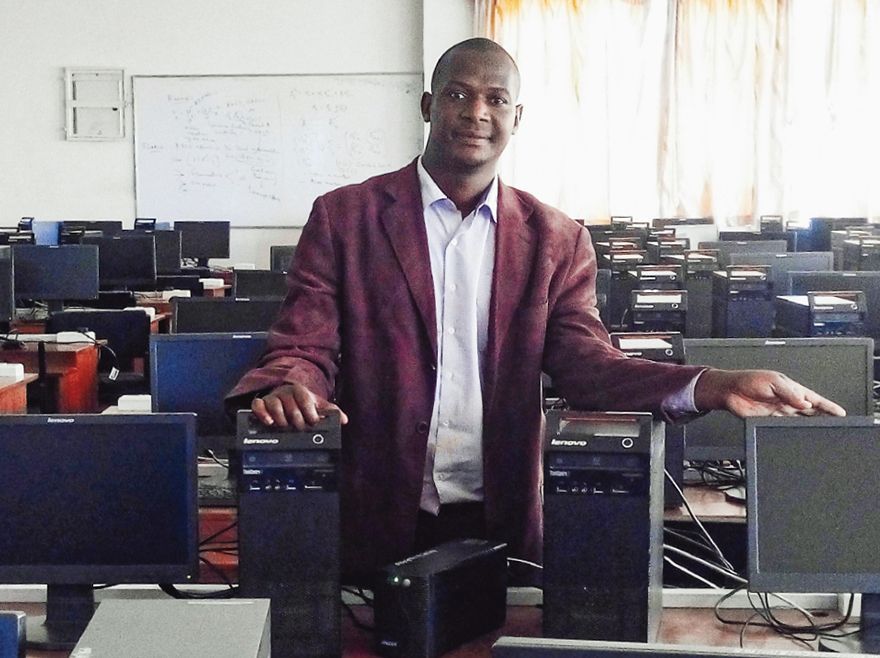
“ABE Initiative opened my world. It was a WOW! kind of experience”
Christopher Maitai
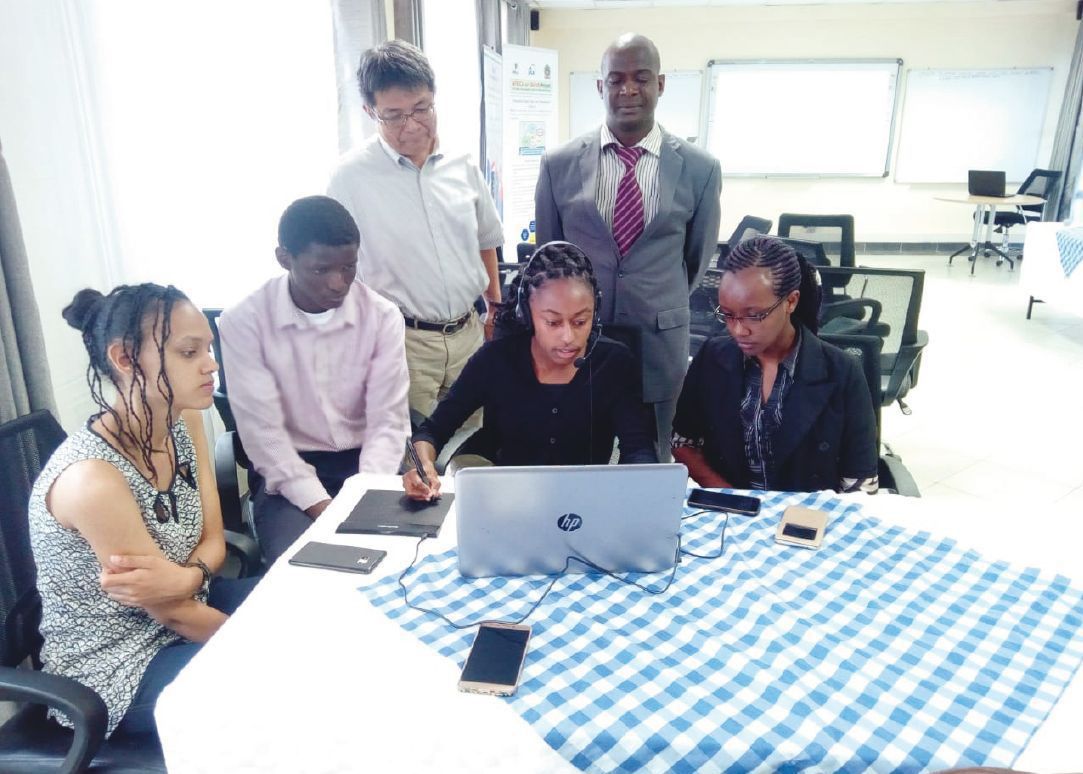
Maitai conducts marketing for a Japanese company’s e-learning business in Kenya. He aims to improve the quality of education through long-distance lessons using presentation material, audio, pointing, writing, etc.
While some, like Lette, get jobs in Japan, others choose to find work in their home countries and start creating links with Japan there. Kenyan Christopher Maitai, who was in the first batch, studied at the Graduate School of Engineering of the University of Miyazaki. Returning to Kenya, he resumed his career as a consultant, and also began providing educational assistance utilizing ICT by partnering with KJS Company Ltd., a Japanese e-learning company. Fate led Maitai to KJS when he met the CEO by sitting next to him at his university café, and this chance meeting led to an internship at KJS. The company’s software ThinkBoard, a video content creation tool, is proving particularly useful in Kenya where there is a teacher shortage. After returning to Kenya, Maitai has served as a bridge-builder between KJS and Jomo Kenyatta University of Agriculture & Technology, while actively promoting KJS’s software locally.
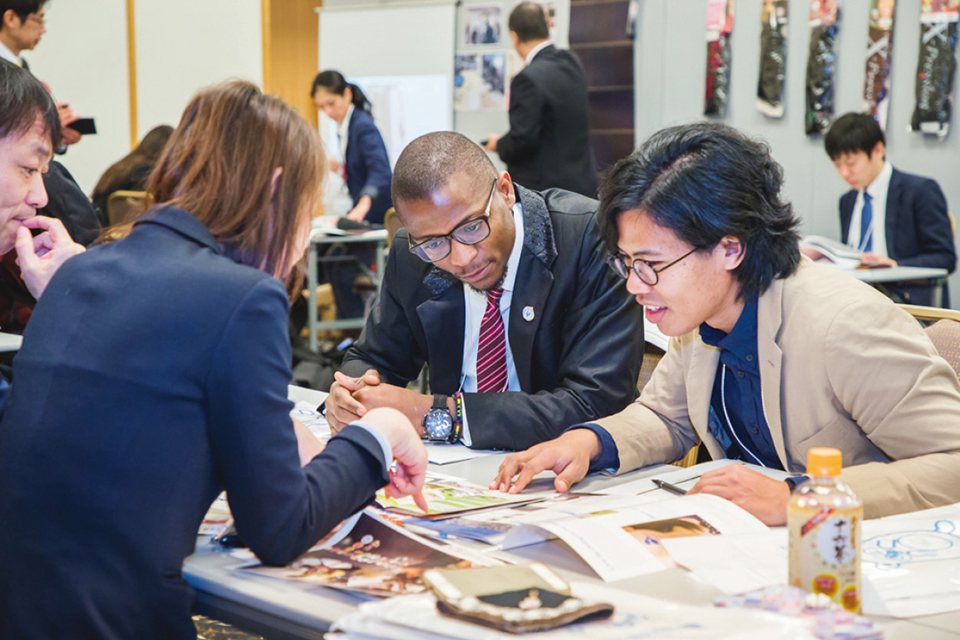
Scene at the African Business Networking Fair held in March this year. The fair offers opportunities to network with Japanese companies.
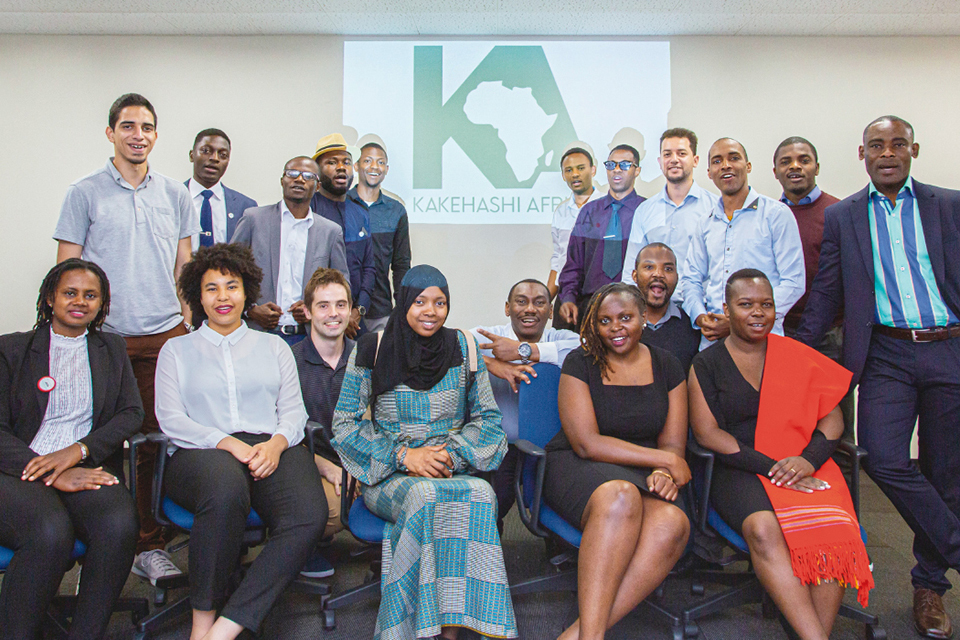
Members attending a meeting in Tokyo of Kakehashi Africa, which was established by alumni of the ABE Initiative.
Even after they finish the program, participants can use the connections they acquire in Japan to build their careers. One such networking opportunity is the annual African Business Networking Fair, where many companies participate. In 2019, 114 ABE Initiative participants and approximately 200 corporate participants representing about 100 companies attended the event. At each of the corporate booths, young Africans were enthusiastically discussing business development in Africa while promoting their experiences and their home countries’ unique potential.
Another advantage of the ABE Initiative that both Lette and Maitai point out is that it enables participants to build networks with fellow participants. The alumni of the ABE Initiative have established Kakehashi Africa, which allows alumni to share information via social media and regularly meet up after they return to their home countries. Various ways of matching participants and alumni with Japanese companies have begun to emerge.
Maitai says, “The ABE Initiative opened my world. The education, the personal friendships, the business network, etc., etc. It was a WOW! kind of experience!”
We can expect the alumni who have had the similar WOW! experience through the ABE Initiative to steadily expand their horizons as bridge-builders between Africa and Japan.

























